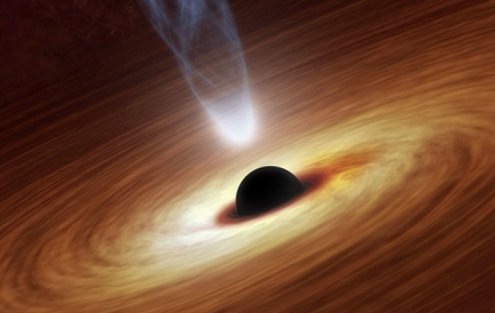
Rumors are circulating that scientists have finally discovered gravitational waves – one of the most important variables in Albert Einstein’s understanding of how the universe works. If confirmed, the observations could become the biggest leap in physics in a hundred years.
When Einstein published his general theory of relativity in 1915, he propelled physics years forward and changed our understanding of how the universe works. He envisioned spacetime (a system containing three spatial dimensions and one time dimension) and gravity in a fresh way, showing us that spacetime was dynamic – not static – and that gravity warps space time in the presence of a massive object.
Einstein further predicted that gravity travels in waves. These ripples are like a net that reacts to space events – star explosions, galaxy collisions, anything on a massive scale. The events create ripples that warp the fabric of spacetime. The bigger the objects, the greater the ripples.
But the hunt for proof of the ripples has been on for decades. Einstein himself thought it would never amount to anything.
That is – until now (we think). Because when famed theoretical physicist, cosmologist, author and policy advocate Lawrence Krauss himself tweets the following message, people in the science community know not to take his words lightly.
LIGO – or Laser Interferometer Gravitational Wave Observatory – is one of several active experiments aimed at detecting the elusive ripples. It’s recently gained an upgrade, dubbed Advanced LIGO. Completed last year, it is our latest and most promising stab at detection.
But LIGO, as well as Krauss, also found cause for jubilation last year, after the launch of the new souped-up version. However, at the time Krauss only gave it a 10-15 percent chance, while the LIGO team had said it was still analyzing data, which was “the official response” cited by the journal Nature.
When website Gizmodo contacted Alan Weinstein at LIGO this time around, a similarly cold reaction was given:
“My response to you is no more or less than the official one, which is the truth: ‘We are analyzing data and will share news when ready.’ I’d say that it is wisest to just be patient.”
Loyola University physicist Robert McNees showed greater optimism. While tweeting that “physics rumors on twitter are at best silly, and at worst bad for science,” he also added this:
McNees further cautioned that it’s very unlikely the LIGO people started the rumor, as it’s pretty much the last thing they would want. However, McNees’ subjective view was that we would, in fact, observe the ripples directly in 2016. He told Gizmodo the following via Twitter.
“The best way to support these scientists is to let them carry out their experiments and analysis the way they were meant to be done. Let them take the time to do things the right way! And as physicists, I think we need to greet the inevitable rumors with explanations of how science works and why it’s so important to be careful. Even if that means having to wait for exciting news.”
_________
ATTENTION READERS
We See The World From All Sides and Want YOU To Be Fully InformedIn fact, intentional disinformation is a disgraceful scourge in media today. So to assuage any possible errant incorrect information posted herein, we strongly encourage you to seek corroboration from other non-VT sources before forming an educated opinion.
About VT - Policies & Disclosures - Comment Policy




Comments are closed.